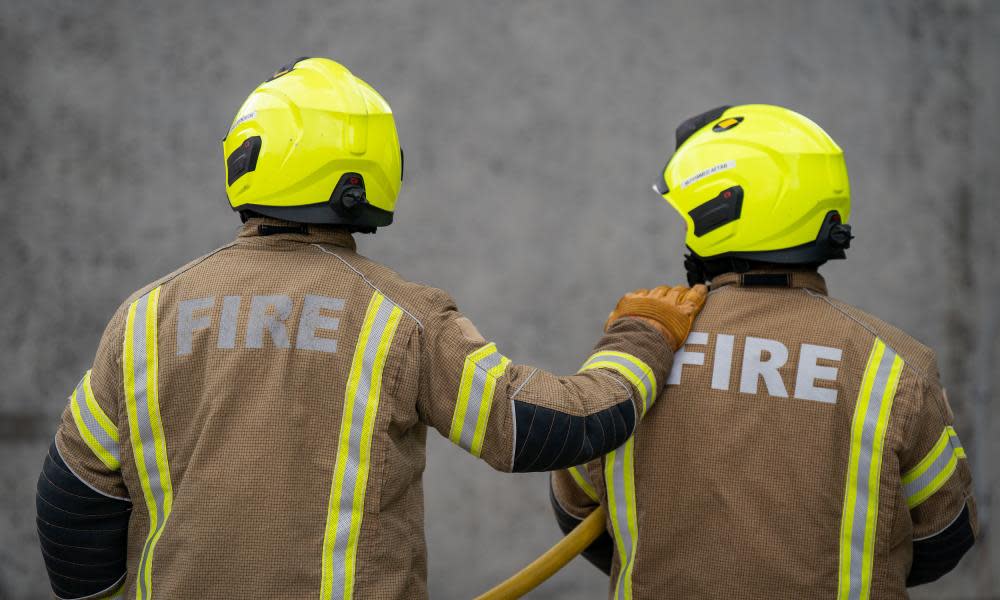Every fire brigade in England plagued by bullying and harassment claims, report finds

Every fire brigade in England is plagued with bullying, harassment and discrimination complaints, a damning report has found, and officials have called for drastic measures to clean up the service.
Inspectors urged bosses to carry out background checks on every firefighter, with those who fail being sacked, after long-awaited findings shone a light on “deeply troubling” behaviour in the emergency service.
Stark examples of abject conduct were revealed by His Majesty’s inspectorate of constabulary and fire and rescue services (HMICFRS) on Thursday. These include:
A senior officer accused of calling a black colleague the N-word dismissing it as simply “having a laugh”.
A firefighter reporting a superior for making a racist comment, only to find his account dismissed because the alleged offender “wouldn’t behave in such a way”. The senior officer in question then threatened “to make his life hell”.
Two male firefighters mockingly told a female colleague they were “going to rape her”, before simulating it with her.
Some staff being reluctant to speak up after being told it would be “career suicide” to do so.
The report moves the spotlight on to the fire service a little more than a week after Scotland Yard was decried as guilty of institutional racism, misogyny and homophobia in a similarly condemnatory report that showed public confidence in the force at rock bottom.
It also follows the London fire brigade (LFB) being placed into special measures in December after a separate report revealed incidents of misogyny, racism and bullying. That move was welcomed by the mother of a young firefighter who killed himself after becoming increasingly distressed about racism and bullying at his station in Wembley.
On Thursday, the inspector of fire and rescue services, Roy Wilsher, said: “Our findings shine a light on deeply troubling bullying and harassment in fire and rescue services across the country – and I fear this could be just the tip of the iceberg.
Related: Dorset and Wiltshire firefighters ‘photographed female crash victims’
“Firefighters can be called upon to do an incredibly difficult job. They should be able to trust each other implicitly, just as the public need to be able to trust them. Unfortunately, our findings show this is not always the case. Instead, we found trust and respect is too often replaced with derogatory, bullying behaviour, often excused as banter.”
Wilsher said he was “shocked and appalled” by some of the findings, and said he had thought a lot of the behaviour was “from the dim, distant past”. “The shocking behaviour we uncovered makes it clear the sector cannot wait another day before it acts,” he said.
In the latest report, specific examples of racism, homophobia and misogynistic behaviour were found in a quarter of England’s fire and rescue services, with such behaviour often dismissed as “banter”.
The inspector noted a particular pressure on female firefighters to avoid being singled out and said there were instances where new recruits who started out positively soon “felt the need to assimilate into the prevailing culture to ‘fit in’”.
Complaints were most often about senior staff bullying more junior staff, with 75% of the 1,478 reports of bullying and 85% of discrimination reports fitting the bill. Inspectors said staff reported allegations of bullying, harassment and discrimination in every fire and rescue service in England.
Releasing the report on Thursday, inspectors called for background checks on all serving firefighters and staff, with a DBS check said to be the absolute minimum required, and for such vetting to become routine for new recruits hereafter. Wilsher said people whose histories caused serious concern should be let go.
But he admitted that such screening would not be enough in itself to clean up the culture in the fire service. “Background checks are vital, they will help, but there also needs to be that cultural change that allows people to challenge inappropriate behaviour,” he said.
Among 35 recommendations in his report, Wilsher called for new misconduct standards to be introduced, including a national barred list and new mechanisms for staff to raise concerns.
His warnings come after the Casey report on the Met police found vetting failures had allowed predators to serve for years on the force. On Thursday, Wilsher acknowledged that without proper background checks for firefighters, he could not rule out the possibility of a similar problem.
In several services, inspectors found a trend of staff not raising concerns if they felt they were not part of an “old boys’ club”.
Inspectors found examples of staff being reluctant to speak up about or challenge inappropriate behaviour as they felt that doing so would harm their careers, with a “negative mark” placed against their names. Some reported being told it would be “career suicide” for them to do so.
The report said all staff – and particularly those in emergency service roles where the lives of staff and members of the public are at risk – need reporting processes they can trust as safe, without fear of any reprisals.
Nevertheless, Wilsher noted: “The majority of fire and rescue staff act with integrity and we are in no doubt of their dedication to the public.”
The general secretary of the Fire Brigades Union, Matt Wrack, said: “Firefighters have the right to work without fear of being mistreated because of their gender, ethnicity, sexuality, disability or neurodiversity – or bullied or abused while doing their job.
“It is clear, both from our experience and from the contents of this report, that the failure to address discrimination and harassment in the service goes right to the top. Some fire service leaders are part of the problem, and have systematically failed to address discrimination, harassment and bullying in the service.”

 Yahoo News
Yahoo News 
